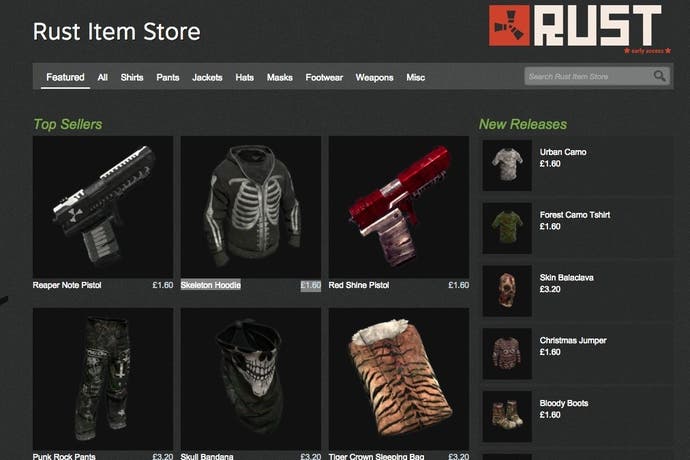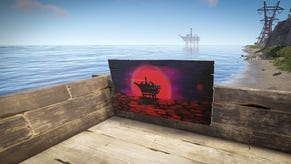Steam launches official developer-run Item Stores
UPDATE: Will allow devs to sell user-made content, split proceeds with modders.
UPDATE 5/11/2015 12.16am: Valve's Doug Lombardi has clarified some details around the new Steam Item Store.
Excitingly, developers will be able to work with modders to sell user-made items on a game's official store and the proceeds will be split between the original game developer and modder.
Valve offered the following explanation to the Steam Dev Community Group:
"This new Item Store is designed to make it easy for developers to establish an in-game economy or to just sell individual cosmetic items, keys, or consumables. And, it's designed to easily integrate with a curated Workshop (similar to Team Fortress 2) so you can accept user-made items, use that data to create item definitions and prices in the Steam Inventory Service, and set those items for sale via the Item Store. Steam takes care of the checkout process, splitting payments to Workshop authors as appropriate, and adding the items to users' inventories. Your game then just needs to be able to call the Workshop to download item content in the right circumstances for your game."
What's not clear is how the proceeds will be split between modders and game developers. We've asked Valve for further details on this (will it be a set per cent, or do developers or publishers negotiate their own rules?) and will update as we find out more.
When asked how Rust's Item Store is different than in-game micro-transactions, Lombardi replied "It's not, except that this new system uses Steam for a bunch of things that developers have traditionally had to build themselves."
There are plenty of options for layouts, background images and a game's top-selling items will automatically appear on the relevant title's store page. It sounds a little like the difference between using Wordpress versus developing a site from scratch.
ORIGINAL STORY 4/11/2015 10.30pm: Steam has launched an all new feature with Item Stores, a developer-run market for specific games.

So far the only game to implement this new feature is Rust, where the developer is selling an array of new cosmetic gear at set prices.
This is similar to the Steam Community Market, wherein players buy and sell their own goods for Steam Wallet funds, only in the new Item Stores it's the developer who sets the prices.
It's unclear what the full implications of this Item Store feature are just yet. Perhaps it's simply an easier way for developers to set up micro-transactions so they can be built into the Steam client, rather than developed in-game. Or maybe this will be the first step in revisiting Valve's failed attempt at paid mods, as it might be possible developers could strike a deal with modders to get their work on a game's official store. At the very least, it allows devs to set price caps on items, so rare ones don't get too expensive.
We've asked Valve for comment on what it's goal is with this new feature. In the meantime, you can snag a Skeleton Hoodie in Rust for £1.60, roughly half the price it's going for on the Community Market.









